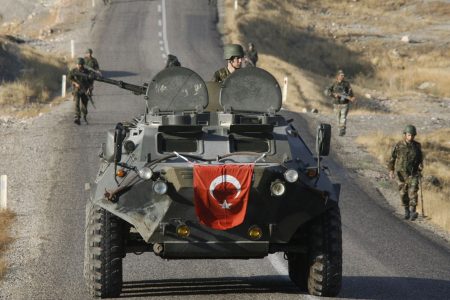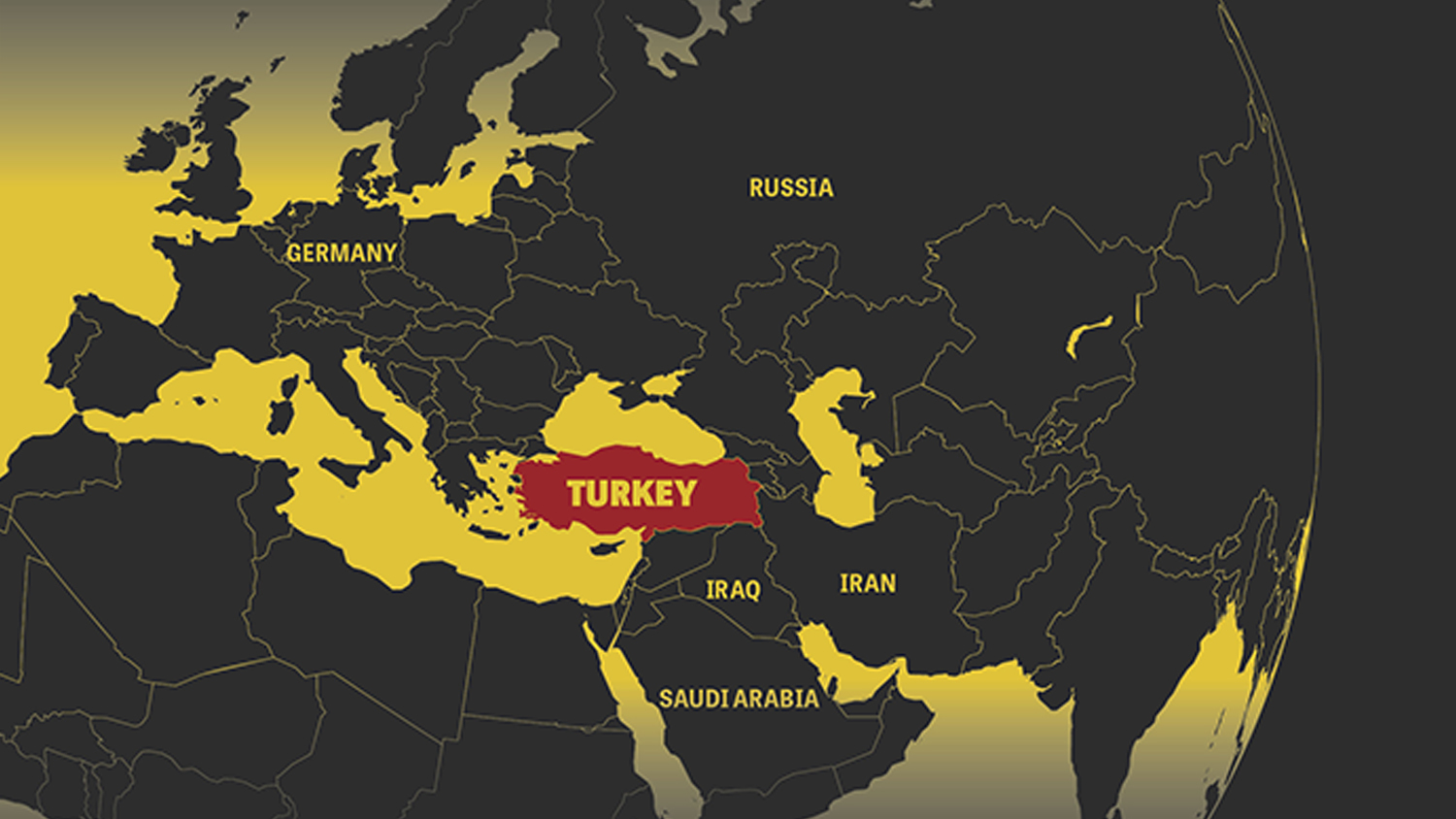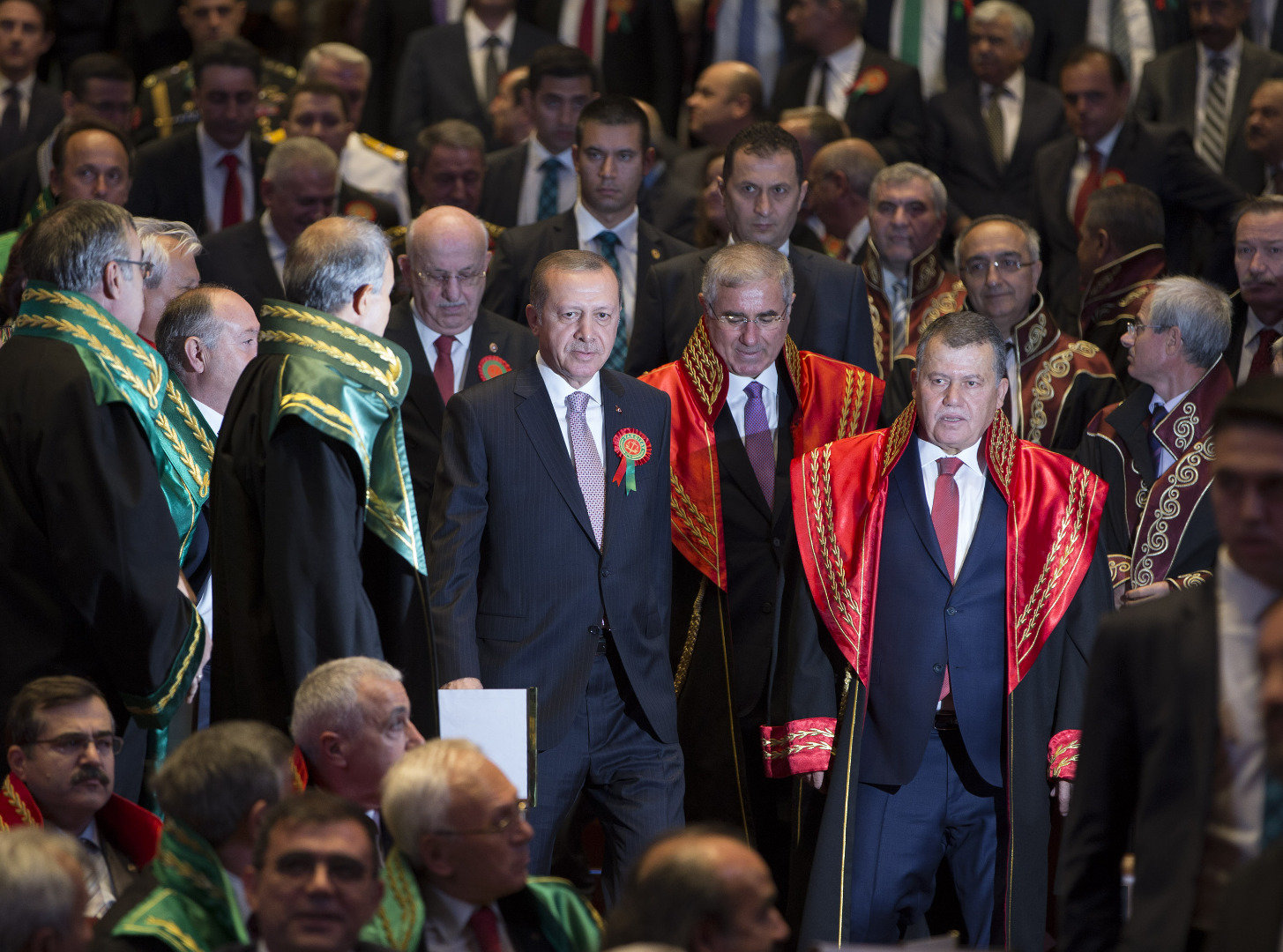[dropcap size=big]T[/dropcap]he 18th March 2018 marked an apparent high point for Turkish interests in the Syrian civil conflict of the past seven years. It was the date on which—against the predictions of many observers—Turkish-backed Syrian rebel forces took full control of the city centre of Afrin, the Kurdish enclave in north-western Syria under the control of the Syrian Kurdish People’s Protection Units (YPG), viewed by Ankara as an affiliate of the outlawed Kurdistan Workers’ Party (PKK).
[authorbox authorid=”41″ ]
This was the most audacious Turkish move so far in the conflict. In 2016, Operation Euphrates Shield focused on majority Arab areas around Azaz and al-Bab, aiming to clear Islamic State fighters and also stop the YPG militia from moving west of the Euphrates. In contrast, this latest operation struck at a traditional Kurdish stronghold—the entire enclave of Afrin has an overwhelmingly Kurdish demographic.
It was also a move that required considerable tacit understanding between Turkish and Russian commands, revealing the level of rapprochement achieved since the diplomatic standoff that followed the Turkish downing of a Russian jet in 24th November 2015 with the death of the pilot.
What is audacious about the latest Turkish move is not only the action, but also the language. Turkish President Recep Tayyip Erdogan has never been one to mince his words, and in terms of the current operation, codenamed Olive Branch, they have been as strident as ever.
President Erdogan has said that “step by step, we will clean our entire border” and “annihilate all terrorists”, in both cases referring to the YPG. Such war talk is perhaps to be expected. Rhetoric matters in all wars. Yet even in the moment of Turkey’s triumph in Afrin, the seeds of the unravelling of such rhetoric lie. It is now that reality will fast begin to impinge on the rhetoric.
Superpower posture
In talking of utterly subduing the enemy, the Turkish authorities are using the language, and setting the goals, of a superpower. It is the same language used by the United States in connection with its campaigns against al-Qa’eda and the Islamic State (otherwise known as Daesh). Yet only a superpower can reliably back such rhetoric with results. Even they find that insurgencies mutate, yet they can at least conclusively win the conventional ground war.
In the case of Turkish operations in northern Syria, the irony is that the objective must ultimately be far  closer to that of their embattled enemy, the Syrian regime of President Bashar al-Assad, than it is to any superpower. Rather than total annihilation of the enemy, the real goal must be to weaken the enemy’s position to the extent that the eventual peace negotiations can be set on their terms.
closer to that of their embattled enemy, the Syrian regime of President Bashar al-Assad, than it is to any superpower. Rather than total annihilation of the enemy, the real goal must be to weaken the enemy’s position to the extent that the eventual peace negotiations can be set on their terms.
Neither President Erdogan, nor anyone else in Turkey’s ruling Justice and Development Party (AKP) leadership, has mentioned negotiations with the PKK, and by extension the Syrian Kurdish Democratic Union Party (PYD), of which the YPG is an armed wing. It is hard to believe that only five years ago, the AKP was engaged in serious peace talks with the imprisoned PKK leader, Abdullah Ocalan.
The rules remain the same
Despite the fact that President Erdogan has taken his party and the country in a strikingly nationalist and anti-Kurdish direction, fulfilling a policy vision that is everything Turkey’s far-right Nationalist Movement Party (MHP) could ever have wished for, all the repression and offensives they can muster do not alter the basic rules of the game.
The PKK is forty years old. The wider Kurdish nationalist movement can arguably be traced back to  before the foundation of the modern Turkish republic. These are now realities in the minds of millions. The proof of conflict resolution is that ultimately, you’ve got to strike a deal. It might not be now. It might not even be President Erdogan or Abdullah Ocalan who is involved. It might be those who come after them. But no peace will come without a deal.
before the foundation of the modern Turkish republic. These are now realities in the minds of millions. The proof of conflict resolution is that ultimately, you’ve got to strike a deal. It might not be now. It might not even be President Erdogan or Abdullah Ocalan who is involved. It might be those who come after them. But no peace will come without a deal.
This is a truth that the al-Assad regime in Syria knows full well. It is a truth that allows for two options: either compromise with your enemy now, or keep fighting in the hope of improving your battlefield position, and compromise later. Just like President al-Assad, President Erdogan is calculating that he is better off fighting now and compromising later.
The Syrian quagmire
So, where does this leave Operation Olive Branch and the Turkish mission in northern Syria? The Afrin operation has been conducted at Russia’s discretion. Moscow may also give the green light to a move on Tal Rifaat. Beyond that, any move on Manbij or east of the Euphrates will only occur at Washington’s discretion—something that looks extremely unlikely.
For all President Erdogan’s bombast, Turkish objectives are coming up against the realities of hard power in Syria. Perhaps this is the reason for President Erdogan’s suggestion that: “God willing, take Tal Rifaat soon and the Afrin operation will achieve its goal”. It is a notable softening. It could well be preparing public opinion in Turkey for a drawback from any suggestion of a clash with forces in Manbij, a strategic town controlled by the YPG with embedded American support.
It is just the latest evidence of the fact that Turkey is no longer master of its own destiny in terms of its Middle Eastern foreign policy. Having relinquished precious soft power capital all across the region, its moves in Syria have played into the hands of the Russians even more so then the Americans. In doing so, Turkey has tied itself into an awkward embrace with Russia from which it cannot withdraw, despite being the beholden party.
At the moment of the triumph of the fall of Afrin, Turkish moves continue to reveal a hollowing out of Turkish power projection in northern Syria. President Erdogan is clearly set upon leveraging his relations with Russia and the US in pursuit of the YPG. He has been partially successful, but the endeavour itself is a trap. The only questions that remain are how far the major powers will let him go, and what price they will exact as payment for their largesse.
Opinions represented at PPJ are belong solely to the contributor of the piece and do not represent any other people, institutions or organizations that the contributor may or may not be associated with in professional or personal capacity, unless explicitly stated.
- The Misak-ı Millî and the expanding Turkish sphere of influence in the Middle East - 09/11/2018
- Why Erdogan Keeps Winning - 28/07/2018
- The Conservative Equation in Turkey - 21/05/2018



